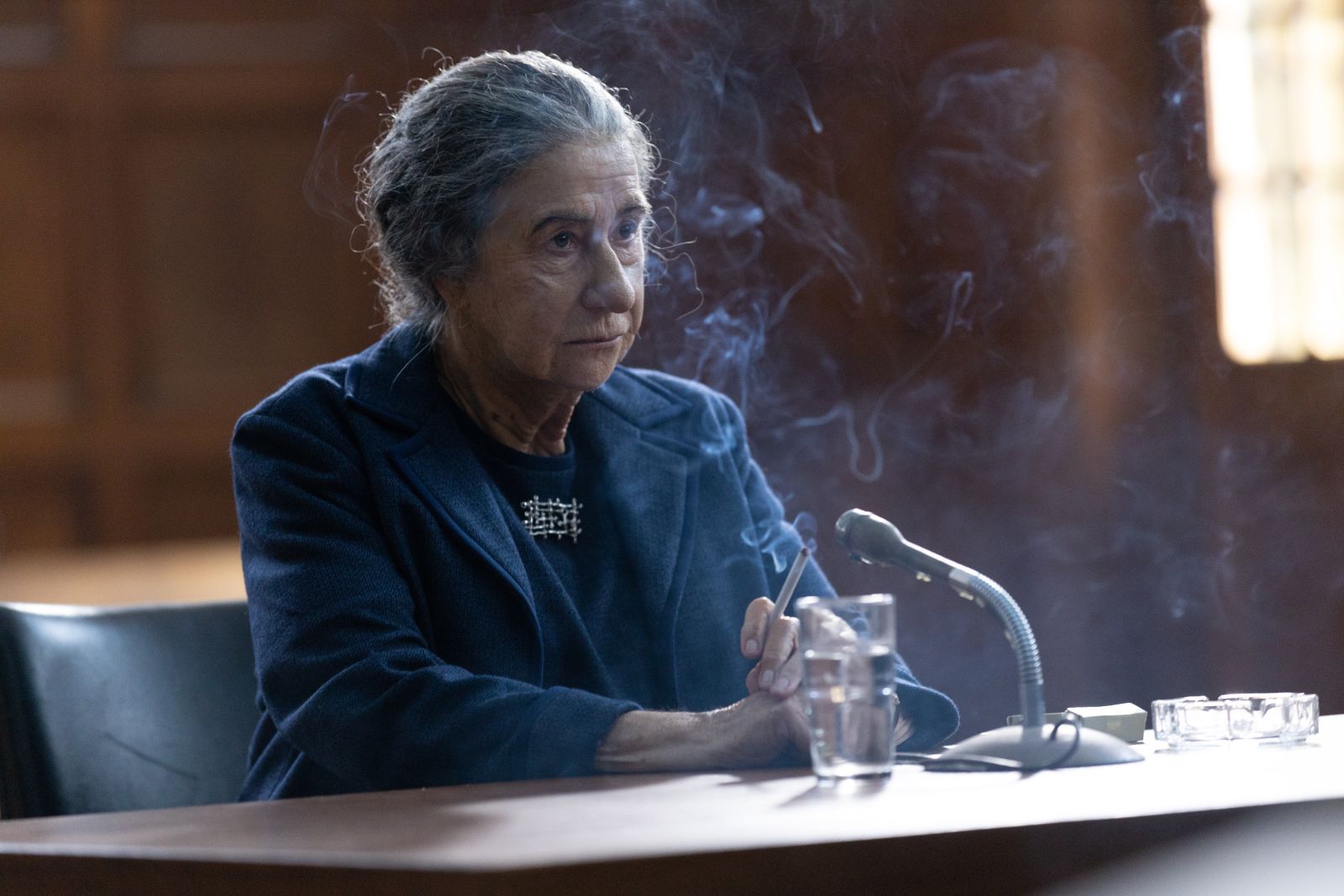Helen Mirren on playing real-life figures: ‘The real person is so much better at being them than you are’
As she takes on the role of Golda Meir in her latest film, we ask her about her chameleonic acting style, key roles throughout her career and winning Oscars

One of Britain’s most beloved actresses, Helen Mirren could also lay claim to being one of its most versatile. Think of her gangster’s moll in The Long Good Friday, her Prime Suspect detective Jane Tennison or that Oscar-winning turn in The Queen. To that list, you can add her latest role as former Israeli Prime Minister Golda Meir in Guy Nattiv’s new film. Set across troubled times during the 1973 Yom Kippur War, Golda is classic Mirren: fearless and ferocious. We chat to her about getting into character and the minefield of portraying real people.

What intrigued you about playing Golda? Oh, gosh. I mean, so many things. The wonderful script that Guy presented, this dark, intense poem. It’s a poem about a person, but also about a conflict. And the challenge and danger of it; you’re laying yourself open to profound criticism. You could blow it terribly! She is a complicated character and an incredibly important character in history. We’re negotiating a bit of a minefield.
You’ve played Jewish characters before; did that give you confidence? I’ve been a Mossad agent [in The Debt]. You don’t get much more Jewish than that!
How did you feel wearing the make-up, the outfit, and chain-smoking those endless cigarettes? I felt like her, honestly. And when I looked in the mirror and I saw myself, I completely accepted it. It didn’t surprise me. It surprised me when I took it all off. And I remember, ‘oh, yeah, right. I actually looked like that.’ And that was to do with the intensity of the experience of filming it; the length of time. Obviously it took quite a long time . . . the make-up and especially the costume is incredibly important. And I was listening to Golda all the time. On my headphones, I was listening to her voice.
What was the biggest challenge in nailing the character? Two things: the voice and the walk. There was something so specific about Golda’s walk. And I don’t think I ever quite got there. But I really tried. There was an intention in her walk and a lack of vanity, a lack of consciousness that she went from this point to that point. And that was in her psychology, I believe, as well: ‘OK, I’m here, and I have to go there. So I’m going there.’ And she just went. It was not ‘should I go?’ or ‘what would they think about me if I go?’ or ‘what will I look like as I go?’ None of that. Also psychologically: ‘I’m going to America to raise money for Israel. I will go and I will raise money for Israel.’ And there was just such a simple directness about her; and for me, it was all in the walk.
Was it important for you to feel like you were showing the real person? Definitely. Of course, as with any of these roles, you can only ever be three-quarters (if you’re lucky) of what the real person is, because the real person is so much better at being them than you are. I felt this a little bit with Golda as well. When I did The Queen, I was very angst-[ridden] . . . I can’t be as she is. She is best at being her. Of course, she was still alive. But what relaxed me was I’m an artist and I’m doing a portrait. And it’s my artistic understanding of this person, the way a portraitist paints a portrait of a person and the artist themselves brings their own understanding to that person. And I thought, that’s what I’m doing. I’m just doing a portrait, my artistic portrait. I think that relaxed me as well with Golda.

Looking back, what do you see as key roles for you? Oh, you know, it’s not what I think of, it’s what other people think of. And obviously, The Queen was one of them. And I’m hoping Golda will be another. I loved doing the woman in The Duke; I absolutely loved that character. Every film was a different journey. Golda will be one of my most important journeys, I think.
You won an Oscar for The Queen in 2007. What did that represent for you?
You know sometimes you dream that you can fly? I dream that I can levitate. I’m standing, and then I suddenly just go up, and I’m up on the ceiling looking down, and I’m saying to everyone, ‘it’s easy! You just think and then you go up.’ It’s always a lovely dream. And winning the Oscar was a bit like that; a bit like dreaming I could levitate.
Golda is in cinemas from Friday 6 October.